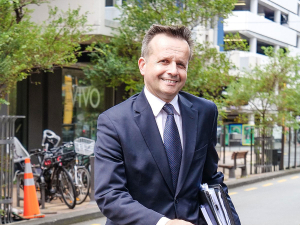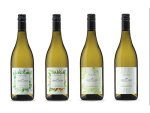The golden era of international trade is over, and a new order has emerged.
That was the gist of a speech by New Zealand's top trade negotiator, Vangelis Vitalis, at the recent Primary Industry Summit in Wellington.
He told the gathering that many of the major countries are no longer abiding by rules-based trade that was a cornerstone of World Trade Organisation (WTO).
He said they are now making their own rules and that, combined with growing protectionism, is making it challenging for NZ.
He pointed out that in the heyday of the WTO, NZ was very successful in taking some of the larger jurisdictions to a disputes panel at that organisation for breaching elements of the rules-based trade agreements with NZ.
As it turned out, NZ won these disputes, but the chances of doing this now have all but disappeared as many of the major economies have ignored the rules of the WTO and the power of that organisation is limited.
Vitalis told the conference that this breakaway from rules-based trade is challenging for our country, and we now have to find a new way of dealing with it. He questioned whether telling the big powers who have stepped outside the rules to change would work, given that they have been doing it for a long time, but he added that doing nothing was not an option.
He sayd the best option is for NZ to work with small countries that still embrace agencies that we are already involved with, such as the CPTPP, the Digital Economy Partnership Agreement (DEPA), and the recent Agreement on Climate Change Trade and Sustainability (ACCTS).
The supposition is that within these forums, NZ may have its voice heard and in doing so could affect some change for the better.
While there is push back on rules-based trading, the geopolitical situation at present is uncertain-bordering-on-chaotic, with wars in the Middle East and Ukraine and political swings to the right and left in many major countries, all of which impinge on how and where NZ trades.
Despite the push back on rules-based trade, NZ has managed in the last couple of years to successfully negotiate FTA's with the UK, and the EU and progress towards FTAs with the UAE and the Gulf Cooperation Council countries. At the same time the present government focus is very much on South East Asia, with moves to put deals together with the likes of the Philippines and Vietnam. India remains a key focus and a challenge.
Deals are Harder
A couple of points that appear to arise from Vangelis Vitalis's address to the primary sector is that negotiating a trade deal today is much harder and complex than it was say 20 years ago.
Taking the UK and EU FTAs as examples, these are clearly more complex and detailed than say the China FTA which was negotiated back in 2008. The UK and EU FTAs and those in the future obviously need skilled and experienced trade negotiators and there is no place for gifted amateurs around the negotiating table. A mix of high skill, entrepreneurship and agility will be the order of the day.
In terms of world trade, the jungle has grown back and clear pathways to deal making are no longer there. What the NZ public is likely to see more of is something that was touched on recently by the EU Ambassador to NZ, Lawrence Merideth, when he said more had to be done to inform NZ businesses in much greater detail about the opportunities that exist in the EU/NZ FTA and, for that matter, other agreements.



















